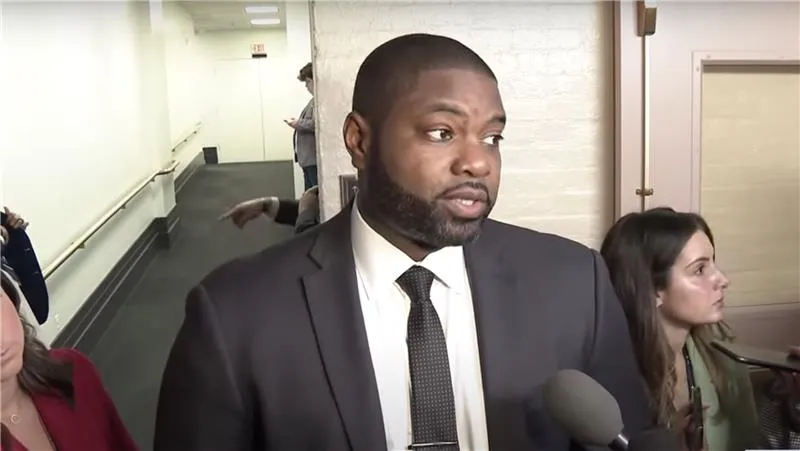Who Will Replace Kevin McCarthy as Speaker of the House?
Here are some of the names currently being talked about as possible candidates and how they stand on key issues such as abortion and religious freedom.

After California Republican Rep. Kevin McCarthy was ousted from his role as speaker of the House in a surprise vote Tuesday, Republicans in the House of Representatives are scrambling to decide who his replacement will be.
The House will reconvene next Tuesday to discuss the speakership, with votes expected on Wednesday.
Here are some of the names currently being talked about as possible candidates for speaker of the House. And here is how they stand on key issues such as abortion and religious freedom.
Rep. Jim Jordan — Ohio
Rep. Jim Jordan, 59, is a Republican representing Ohio’s capital city, Columbus. He announced that he is running to be House speaker early Wednesday morning.
In office since 2007, Jordan is a member of the conservative House Freedom Caucus as well as chair of the House Judiciary Committee and the Select Subcommittee on the Weaponization of the Federal Government.
Jordan earned an A+ rating on Susan B. Anthony Pro-Life America’s most recent “National Pro-Life Scorecard.”
In 2022, Jordan supported a 15-week national abortion ban by co-sponsoring the “Protecting Pain-Capable Unborn Children from Late-Term Abortions Act,” introduced by New Jersey Republican Rep. Chris Smith.
In July, Jordan threatened to hold FBI Director Christopher Wray in contempt of Congress if the bureau did not comply with congressional subpoenas related to evidence that the agency may have spied on Catholic Americans. Jordan summoned Wray to the House and grilled him on an FBI document that discussed monitoring what it deemed “radical-traditionalist” Catholics over alleged concerns of violent extremism among the lay faithful.
Also in recent months, Jordan has been an active supporter of pro-life advocates who have been targeted and prosecuted under the Freedom of Access to Clinic Entrances (FACE) Act. In May, Jordan threatened to reduce the FBI’s funding because of “politics driving in the agenda” in how the bureau has been selectively enforcing the FACE Act.
Jordan has said that he is against additional funding for Ukraine and in a letter to fellow members of Congress said that as speaker he would concentrate on securing the border, addressing rising crime in cities, and getting spending under control.
Rep. Steve Scalise — Louisiana
Rep. Steve Scalise, 57, is a Louisiana Republican representing parts of New Orleans. Scalise also declared Wednesday that he is seeking the role of speaker of the House.
Scalise, a Catholic, has served in Congress since 2008 and is the current majority leader. He served as the House minority whip from 2018 until Republicans took the majority in 2023. He is currently battling blood cancer.
In 2016, Scalise was an outspoken supporter of the Little Sisters of the Poor in their Supreme Court case against an Obamacare mandate requiring them to pay for contraception. As whip, Scalise fought to preserve key pro-life protections, helping to stave off Democrat attempts to do away with the Hyde Amendment, a measure banning federal tax dollars from being used for abortions.
Scalise earned an A rating in Susan B. Anthony Pro-Life America’s most recent pro-life scorecard.
In January, Scalise co-sponsored the Born-Alive Abortion Survivors Protection Act, a bill protecting babies who survive botched abortions from being killed after birth. He had advocated for the bill for years, and the measure passed the House when Republicans regained control. The measure has since stalled in the Senate.
In 2017, Scalise was shot and nearly killed by a left-leaning extremist who opened fire on Republican representatives and staffers at a practice for a congressional baseball game.
Rep. Kevin Hern — Oklahoma
Republican Rep. Kevin Hern of Oklahoma is another name being floated around as a possible contender for the speakership.
Hern, an evangelical Christian, told reporters Wednesday that he is exploring the amount of support he has for the speakership.
Hern, 61, has a strong pro-life record, gaining an A+ rating by Susan B. Anthony Pro-Life America. He voted for legislation condemning attacks on pro-life organizations and churches and supported the Born-Alive Abortion Survivors Protection Act, which mandates health care for a child in a botched abortion. That act passed the House in January.
Following the overturning of Roe v. Wade last year, Hern co-authored a letter to the Government Accountability Office requesting information on federally funded programs that support pregnant mothers and parents with young children in order to make the public more aware of programs already in existence.
After the federal government backed down from demanding that an Oklahoma Catholic hospital extinguish its chapel sanctuary candle in order to keep its accreditation, Hern co-wrote a letter to the administrator for Centers for Medicare and Medicaid Services, HHS Secretary Xavier Becerra, and The Joint Commission President Jonathan Perlin, speaking in defense of faith-based hospitals.
The letter said that “the government should protect, rather than erect barriers to, the right for religiously affiliated hospitals to live out and operate in accordance with their sincerely held religious beliefs.”
Rep. Byron Donalds — Florida
Republican Rep. Byron Donalds, 44, is another name being tossed around as the possible next speaker.
The second-term Floridian congressman, who earned as many as 20 votes in three rounds of voting during the last speaker’s race, which ultimately put McCarthy on top, earned an A rating from the Susan B. Anthony Pro-Life America as someone who has “voted consistently to defend the lives of the unborn and infants.”
One of the bills Donalds voted against was the Women’s Health Protection Act, which would have enshrined abortion as a human right in law. The law failed to pass in 2022 but was reintroduced in 2023.
Donalds was outspoken against mandates forcing vaccination against COVID-19 and co-authored a letter to the commandant of the U.S. Coast Guard critical of the military branch for denying religious exemptions in “nearly every single case.”
In February, Donalds introduced the Denying Earnings to the Military Oligarchy in Cuba and Restricting Activities of the Cuban Intelligence Apparatus, or the DEMOCRACIA Act.
The legislation “provides for asset- and visa-blocking sanctions for conduct relating to Cuba,” a nation that is one of the top 50 countries where Christians face the most extreme persecution for their faith, according to the advocacy organization Open Doors.
“The president must sanction foreign persons that provide financial support to specified Cuban government sectors (e.g., the defense sector) or any other government sector that the president certifies is involved in human rights abuses or terrorism,” the act says.
Rep. Patrick McHenry — North Carolina
Rep. Patrick McHenry, 47, a North Carolina Republican in office since 2005, is currently the acting speaker of the House, having been designated by McCarthy before his removal.
A Catholic, McHenry attended undergrad at Belmont Abbey College in Belmont, North Carolina, included in the Newman Guide’s list of faithful Catholic universities and the Register’s annual college guide.
Before becoming the temporary speaker of the House, McHenry was serving as chair of the House Financial Services Committee.
He earned an A rating on Susan B. Anthony Pro-Life America’s scorecard and has supported pro-life legislation, including the Born-Alive Abortion Survivors Protection Act. He has opposed Democrat efforts to enshrine abortion into federal law.
In 2013, McHenry, a 10th-term congressman, co-sponsored the Marriage and Religious Freedom Act, which prohibits the federal government from discriminating against someone who holds traditional views on the sanctity of marriage.
Following the Supreme Court’s 2005 ruling prohibiting displays of the Ten Commandments in two Kentucky courthouses, McHenry said: “Our religious liberties are being attacked.”
“The federal courts have laid out a full frontal assault on our liberties,” he said at the time.
A critic of the abuses of the Chinese Communist Party, McHenry co-penned an op-ed in 2022 calling for supporting an American supply chain that doesn’t support the “abhorrent human rights abuses sanctioned by the Chinese government.”
Rep. Tom Emmer — Minnesota
Minnesota Republican Rep. Tom Emmer, 62, has said he will be running for the position of majority leader and will not be running for House speaker. However, his name continues to be raised as a possible candidate.
In office since 2015, Emmer is the current House majority whip.
Susan B. Anthony Pro-Life America’s scorecard rated him A+ for his pro-life legislative efforts. He was an advocate of the Born-Alive Abortion Survivors Protection Act, fighting for its passage while Democrats held it up in the House for years. He has also opposed efforts to codify Roe v. Wade by enshrining abortion into federal law.
Former President Donald Trump
Former President Donald Trump, 77, who is the Republican frontrunner for the 2024 presidential race, has been named by certain members of Congress to be the next speaker of the House.
Though Trump is not a member of the House, the Constitution does not specify that this is a necessary prerequisite to becoming speaker. So, though unlikely, Trump could theoretically be made speaker of the House if voted in by the members.
In response to questions from reporters, Trump didn’t outright deny that he would accept the spot if elected but said that he was focused on his presidential campaign.
“We’ll do whatever is best for the country and for the Republican Party,” he said.
Trump’s pro-life record during his term in 2016 was bolstered by his appointment of three justices to the Supreme Court, which was a major factor in the overturning of Roe v. Wade, the 1973 landmark case that legalized abortion nationwide.
During Trump’s time in office, Susan B. Anthony Pro-Life America referred to him, a nondenominational Christian, as the “most pro-life president ever.”
In addition to signing an executive order protecting infants born alive in a failed abortion attempt, Trump was the first president of the United States to speak at the human-rights demonstration the March for Life.
Despite his pro-life record, Trump has come under fire from pro-life groups in recent months for comments criticizing early protection of the unborn. The former president has refused to clarify whether he would support a federal abortion ban.
On religious freedom, Trump was praised when he brought sanctions against Chinese officials but was called upon to be more aggressive in applying the same level of pressure against religious-freedom persecutors in other parts of the globe.
Trump signed an executive order to further international religious freedom in countries of particular concern through the allocation of $50 million for programs promoting and protecting the freedom to worship.
The administration issued guidance that faith-based groups must have equal access to public grant programs and created an advocate in the executive office of the president for faith-based communities.
- Keywords:
- u.s. house of representatives























